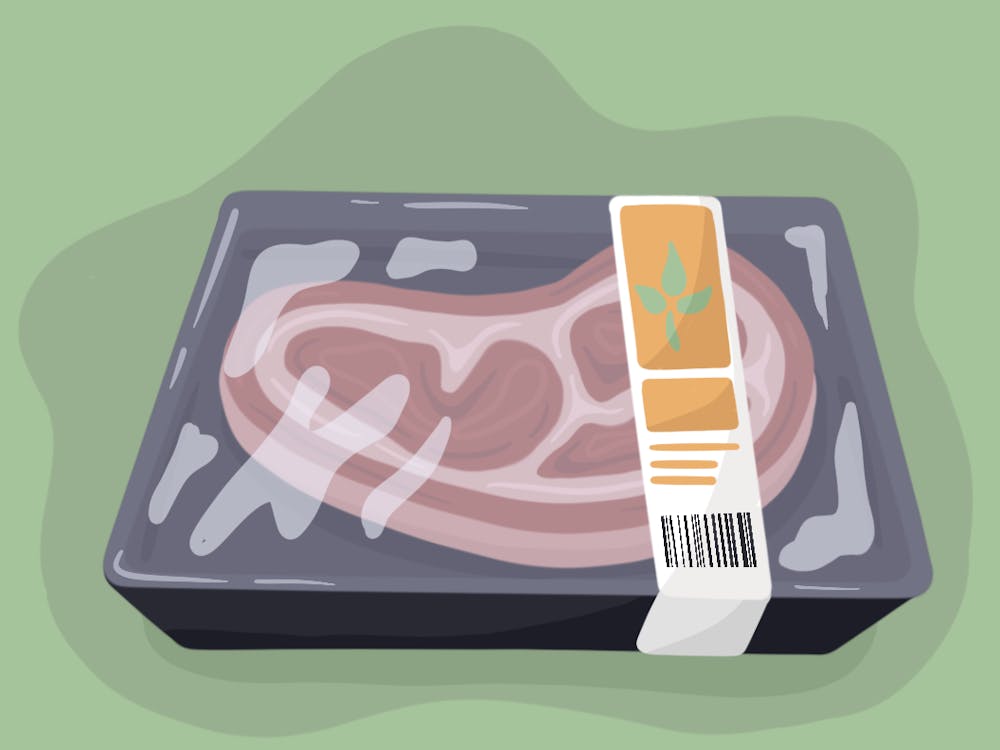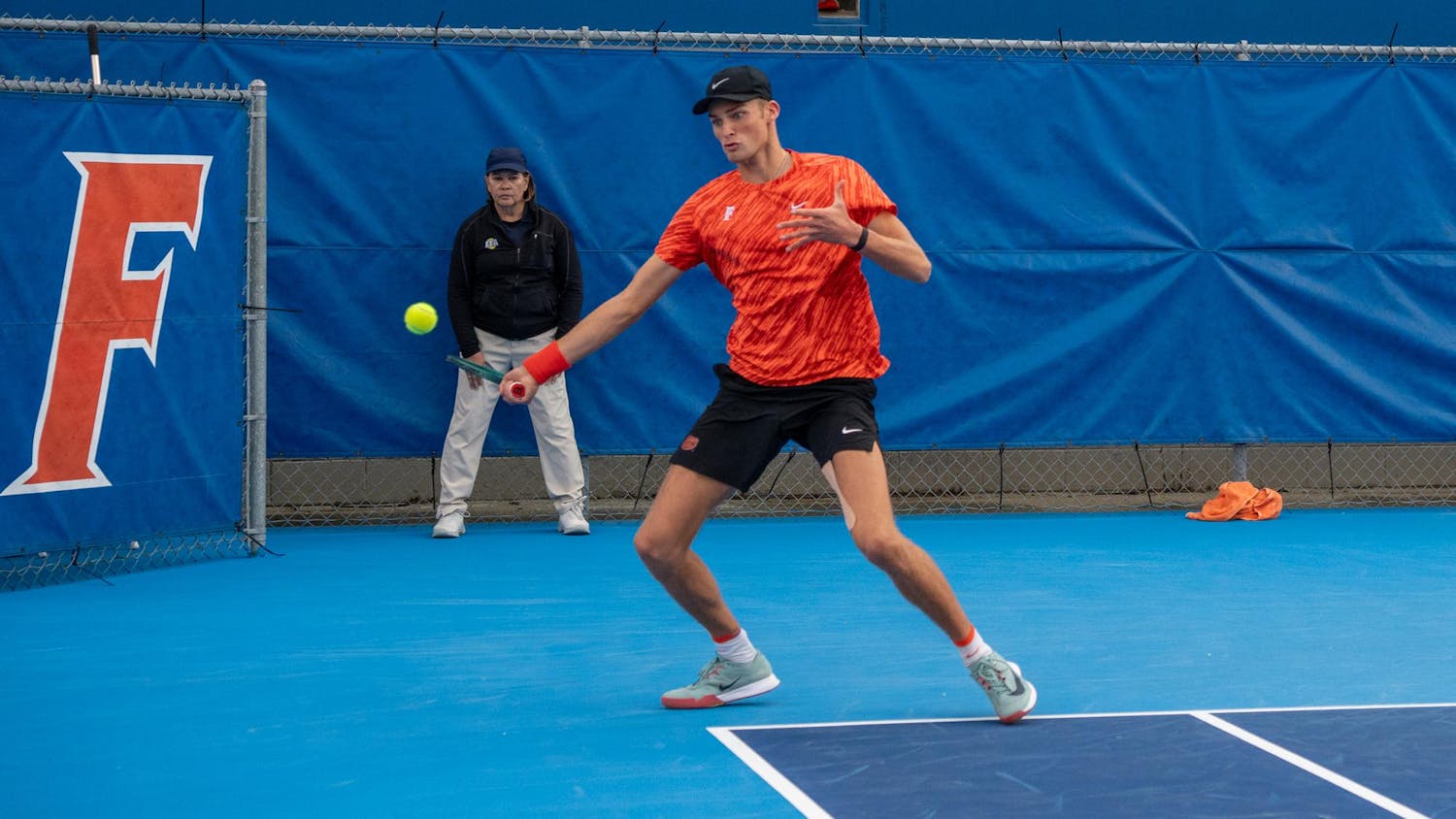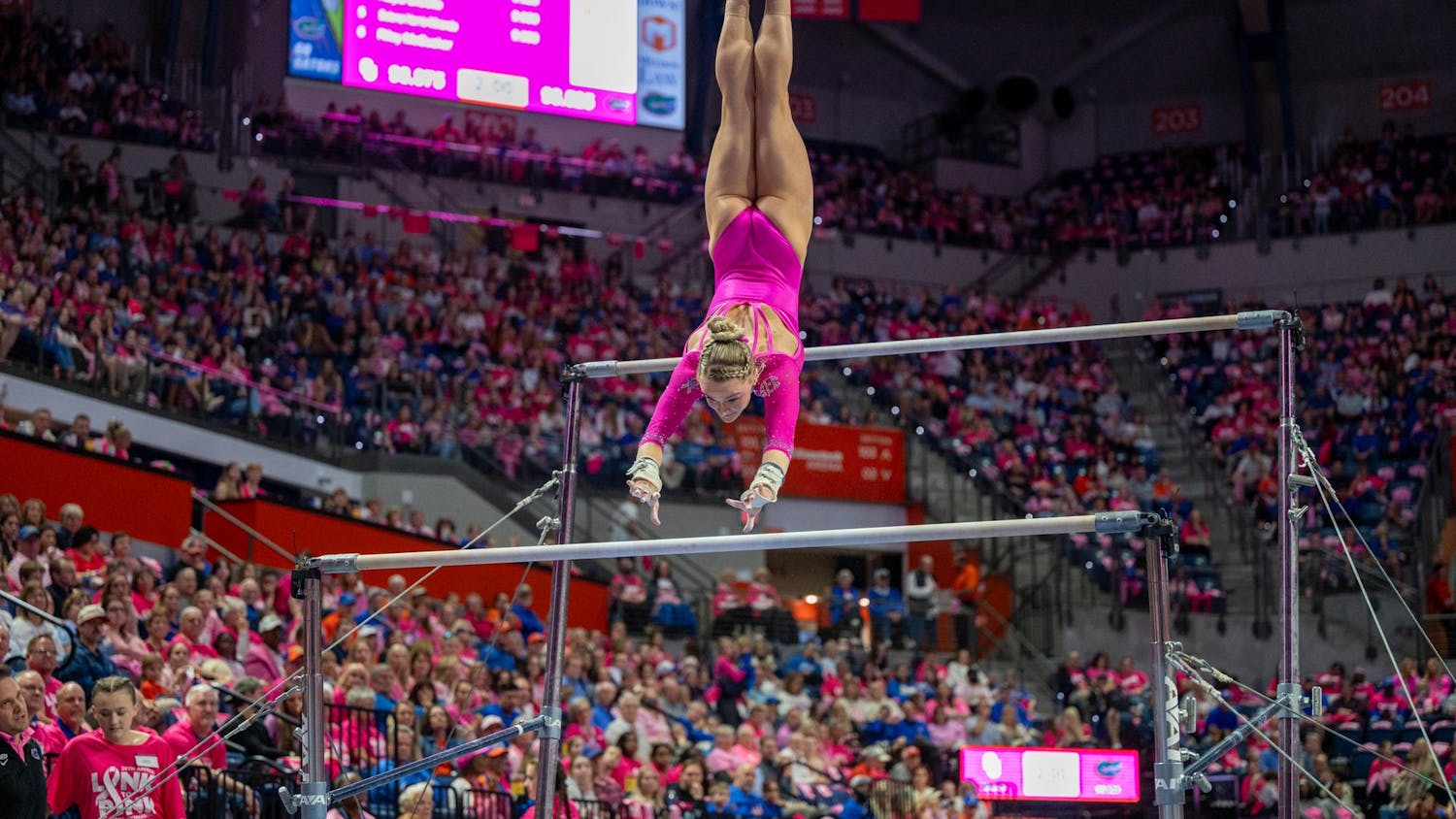For the past few months, Razieh Farzad’s email inbox has been full.
Since Florida legislators first proposed banning cultivated meat in November, the UF assistant professor and seafood safety extension specialist has found her research on cellular aquaculture under a new level of public interest.
“So many people email me that it was not easy not to keep track of the bills,” she said.
Called “cultivated meat” by researchers and “lab-grown meat” by critics, the alternative protein is developed directly from animal cells. Scientists collect tissue samples from live animals without killing them. Then, they allow the cells to multiply and mature in a lab before processing them into a food product.
Global meat consumption is expected to increase 13% over the next eight years, according to a United Nations report. Researchers suggest cell cultivation could help meet this demand while requiring less water, land use and gas emissions than traditional meat.
But those opposed question whether cultivated meat can deliver on its promised sustainability. Pushback comes largely from conventional meat giants like the U.S. Cattlemen's Association, which claimed cultivated meat would promote “corporate and consolidated control of the food supply system” in a 2022 statement.
Legislation in states including Arizona, Alabama, Tennessee and West Virginia has emerged against cultivated meat in the last two months.
Now, a bill that would make the creation or sale of cultivated meat a second-degree misdemeanor is making its way through the Florida legislature. The bill passed in the Florida Senate Feb. 29 as part of a larger package also regulating electric vehicle charging stations and pest control. Its companion is scheduled for a second reading in the House of Representatives.
UF scientist reactions vary from ‘not worried’ to ‘concerned’
The legislation still allows research in the cultivated meat field. Farzad, UF’s only expert in cellular agriculture according to the Institute of Food and Agricultural Sciences website, feels confident her academic freedom and the university’s support will protect her from the bills, she said.
“It’s not relevant to me — I’m not manufacturing anything for commercialization yet,” she said. “I’m not worried. I’m just doing research.”
Farzad and the three students she leads in her lab don’t cultivate meat for human consumption, but for an exclusively underwater clientele: fish.
Farzad received $199,661 through the Florida Sea Grant program earlier this year to research lab-grown fishmeal as an alternative protein to feed sea creatures in Florida fisheries and fish farms.
Traditional fishmeal is made from ground-up forage fish like anchovy and herring. Sourcing these ingredients from the ocean is costly and unsustainable — a problem that will only increase along with world population in the decades ahead, Farzad said.
Farzad hopes her research will provide fish the same proteins at a lower cost, she said.
“My passion is helping to feed the future,” she said. “One of the ways to help with that is production of seafood through aquaculture.”
Though Farzad remains confident her research will be safe from Tallahassee, Florida Sea Grant Program Director Sherry Larkin isn’t so sure.
The UF food resource and economics professor, who worked with Farzad on an informational flyer, thinks the technology holds great promise for food self-sufficiency, she said in an email.
“My concerns with this bill is that it doesn’t appear to define ‘meat,’ and sometimes refers to the more generic ‘protein,’” she said. “Also, the focus seems to be on food for human consumption, which is just one use of this technology.”
Confusion coast to coast
About 2,700 miles from Farzad’s lab, the cofounders of the San Francisco-based cultivated salmon start-up Wildtype share Larkin’s concerns. Aryé Elfenbein and Justin Kolbeck have both visited Florida to testify against the proposed ban.
Multiple states introducing near-identical legislation at the same time was no accident, Kolbeck said. He blames a well-coordinated effort by “large vested interests” in the conventional meat industry to kill the technology before it gets off the ground, he said.
A hearing Kolbeck attended two weeks ago demonstrates his point, he said.
“The chair of the hearing heard two or three of us stand up and talk about why this bill would be a bad idea,” he said. “The chairman of this committee said, ‘Hey, we heard really compelling reasons from these speakers why this is a bad idea to ban in Florida. Can someone from the conventional meat industry please stand up and explain why you want this banned?’”
The resulting silence went on long enough to become awkward, Kolbeck said.
Shutting down cellular agriculture to appease conventional meat lobbyists sends a devastating message to Florida researchers, including those at UF, about the future of biomedical research in the state, Elfenbein said.
“There are people getting Ph.D.s in this field now,” he said. “This is something that 10 years ago I wouldn't have been able to imagine. And to just shut down all of the potential, and particularly in states like Florida that have such an amazing university system, it’s devastating.”
Cultivated meat will be the way food is provided in the future, said David Kaplan, a Tufts University biomedical engineering professor and self-described “flexitarian” who has researched cultivating meat for human consumption for about 10 years.
In the long run, everybody will eat cultivated meat, Kaplan said. He doesn’t understand why Florida won’t embrace technology with the potential to provide healthier and safer foods, he added.
“We have to do something … going forward, to feed our own population,” he said. “Some states don't want to support [industries] that are going to be doing this. That's their choice. I can’t influence them. There's plenty of states that will.”
Cash and cows
A group of 30 cultivated meat investors signed a letter to Gov. Ron DeSantis Feb. 15 opposing the ban before its Senate reading. Restricting the biotechnology sector would “raise strong doubts among investors” about Florida’s support of emerging technologies, the letter stated.
Jennifer Stojkovic’s venture capital fund Joyful Ventures was one of those that signed. Stojkovic did so because of her concern as an investor, but also because, as a Florida taxpayer with properties throughout the state, she’s concerned the ban will affect public research, she said.
“This is really important if you want to be able to attract staying power with your universities,” she said. “There needs to be investment into these students with their innovations that they ideally would be creating through the education we're getting in Florida.”
Far from passing anti-cultivated meat legislation, Florida should be championing it, Stojkovic said. The algae bloom in Okeechobee and ongoing manatee population concerns are both related to the cattle and sugar industries, she said.
“It’s quite ironic that a state that really does need to transition away from cattle would make a law like this,” she said.
Florida ranked No. 12 in the nation in number of beef cows on Jan. 1, 2022, making up 3% of the U.S. total.
But Jason Scheffler, UF research assistant professor in meat science and muscle biology, thinks cattle ranchers are more scapegoats than culprits when it comes to natural resource depletion.
It’s easy to point at livestock producers as the problem, he said. But doing so ignores the fact cattle ranch land provides unanticipated benefits to Florida — like water sequestration, flood control and wildlife management.
As a member of the Florida Beef Council, Scheffler has talked with cattle ranchers about cultivated meat. Though they don’t like the competition alternative protein would bring, most support for the ban comes from the representatives “above them,” he said.
“Cattle ranchers tend to be fairly independent, free-market types,” Scheffler said. “They don't want people placing restrictions on them, they're not necessarily inclined to put restrictions on other people …. this was not their idea … they're not necessarily opposed to it, but they're not exactly for it either.”
Scheffler thinks the process of cultivating meat is too expensive to be feasible for consumers anytime in the near future, he said.
Of the more than 150 U.S. companies researching cultivated meat, which had taken in $2.8 billion in all-time investment by the end of 2022, just two have received FDA approval to sell their products.
Scheffler also doubts promises about the protein’s environmental benefits.
The often-cited 2011 study proclaiming cellular agriculture would reduce greenhouse gas emissions between 78% and 96% was written before any cell-cultured meat had actually been produced, he said. But results since then have been “underwhelming.”
Most recently, a preprint University of California Davis study that hasn’t yet been peer-reviewed found cultivated meat will have lower emissions if it undergoes a food-grade process, but significantly more emissions if it goes through a pharmaceutical processing.
Cultivated meat research doesn’t have to come at cattle farmers’ expense, said Tracy Scheffler, UF associate muscle biology professor. Instead, traditional farmers can benefit from the research.
“They want to make the process more efficient, so they are also working on understanding the cellular processes, nutrients, signals etc. that will optimize the conditions for growth,” she said. “It may be knowledge that can be applied to the animal.”
Though sympathetic to traditional cattle ranchers, many of whom have ranches going back several generations, Scheffler doesn’t want a ban on cultivated meat. Instead, she believes in letting the market decide and improving traditional meat sustainability in the meantime.
As the ban approaches its House hearing, Florida representatives will have eyes on them: from environmentalists and biotechnology investors, cattle ranchers and aquafeed specialists — all with different interests but the same urgency for action.
Contact Zoey Thomas at zthomas@alligator.org. Follow her on X @zoeythomas39.

Zoey Thomas is a UF media production senior and the Spring 2026 editor-in-chief of The Alligator. She has previously been data editor and engagement managing editor, as well as a reporter for three semesters. She was also a intern at the Orlando Sentinel. In her sparse free time, Zoey enjoys reading a good book, going for a run or waking up her roommates with the sound of her espresso machine.






